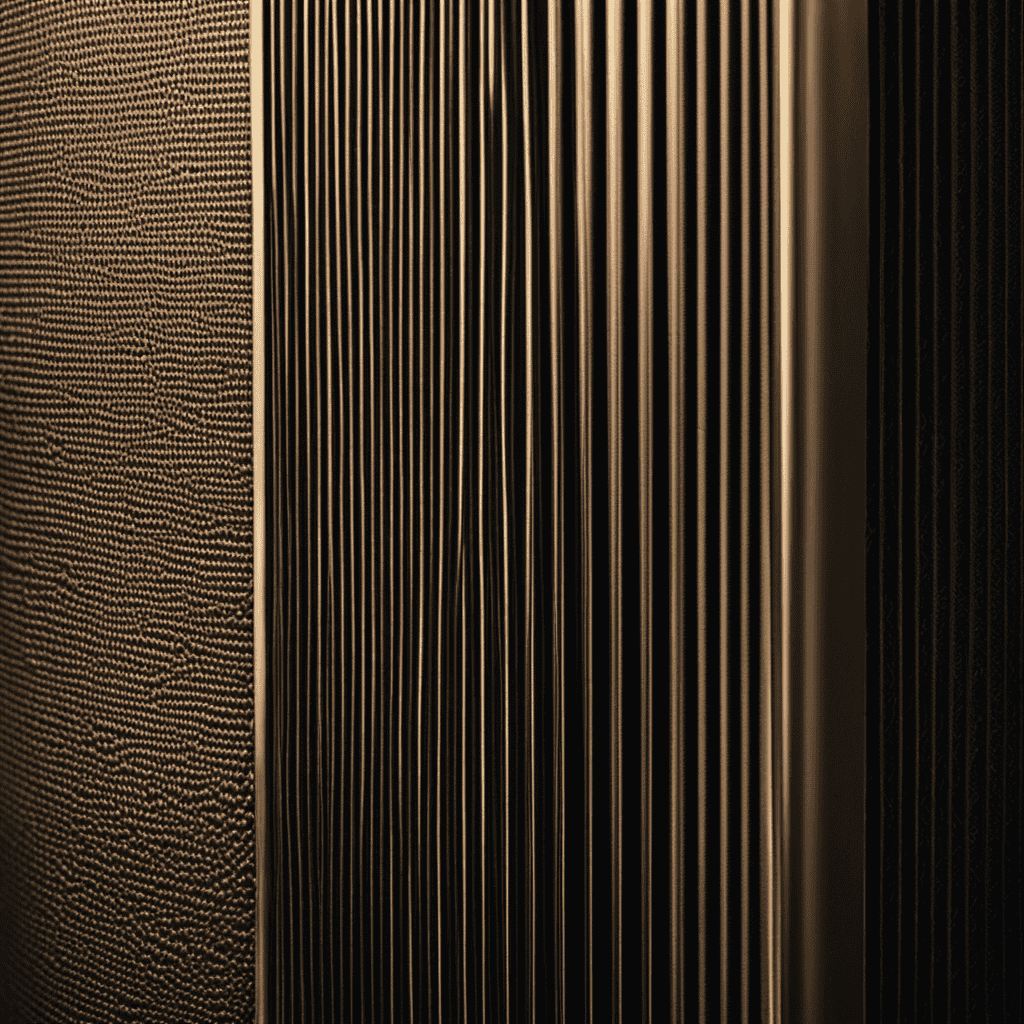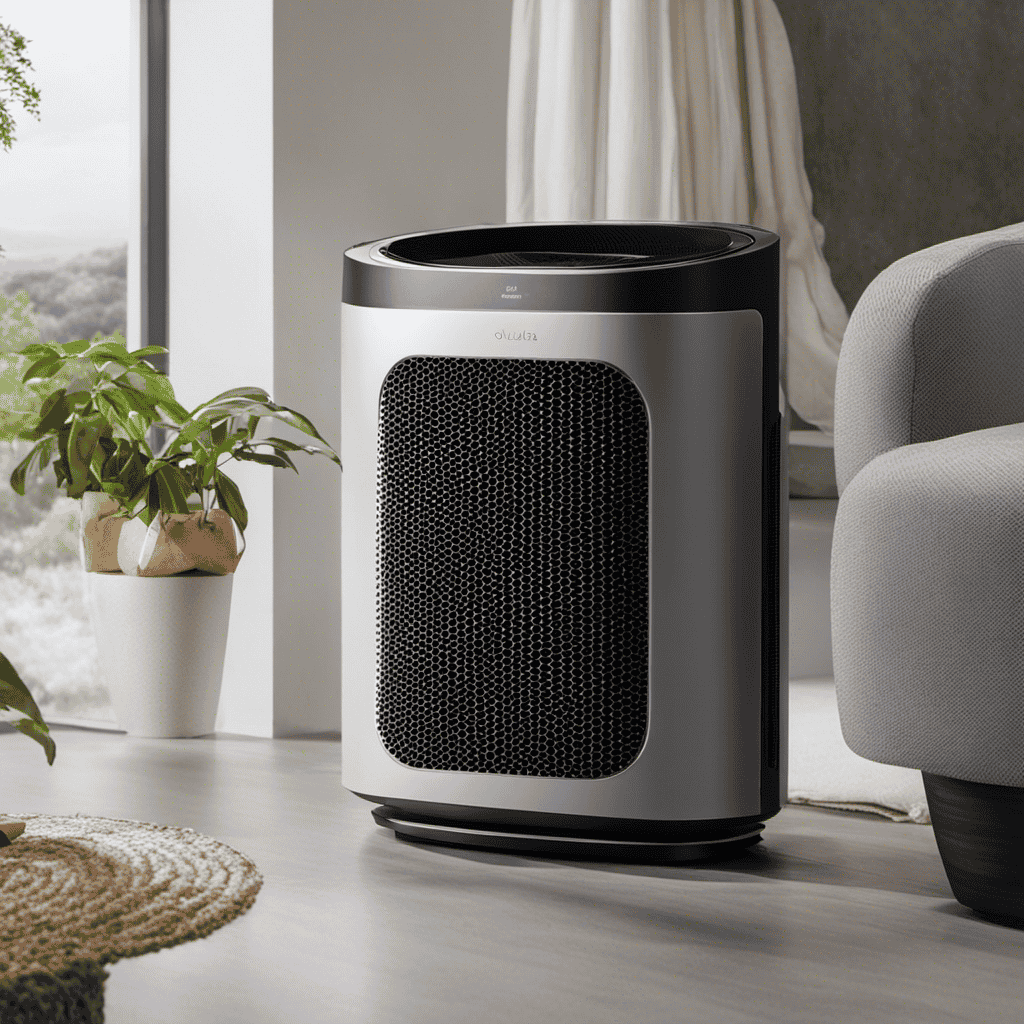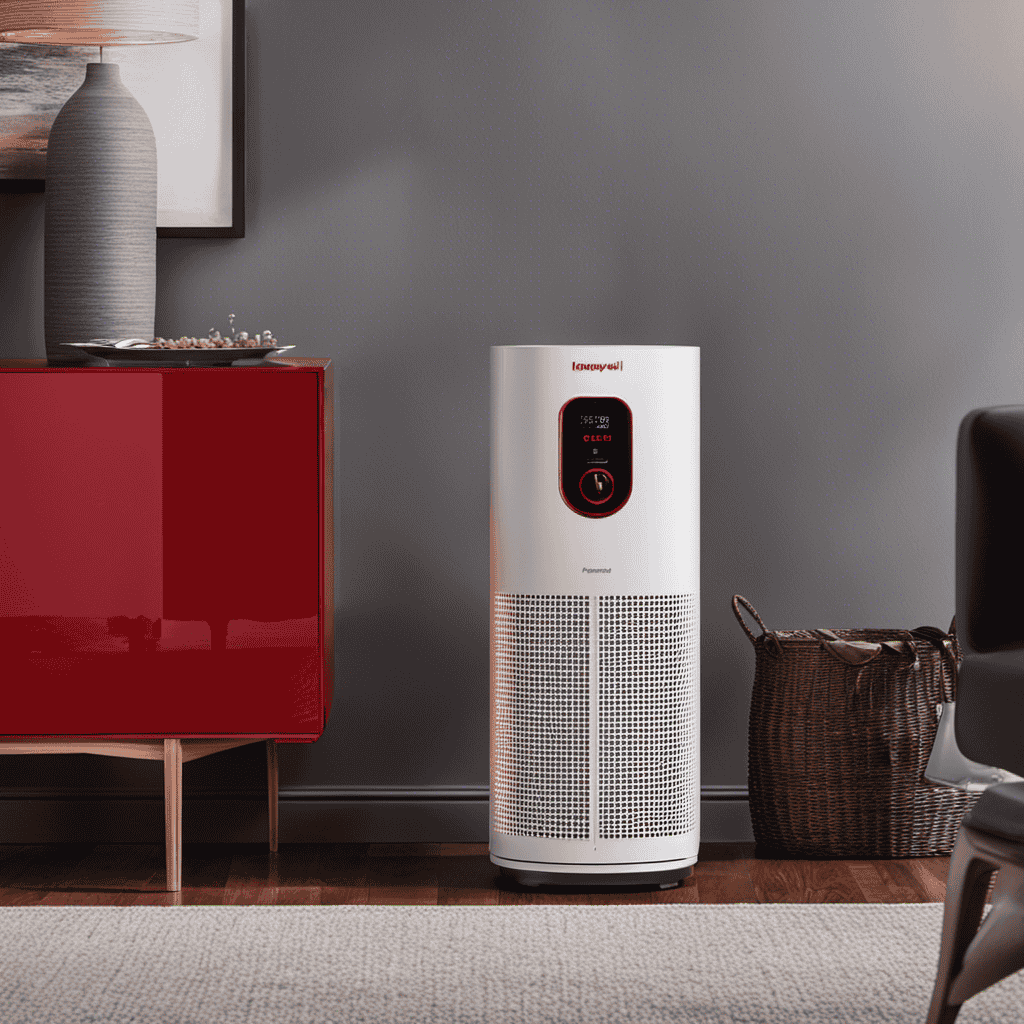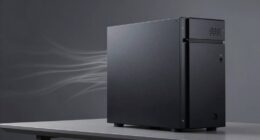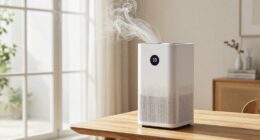I will always remember the initial moment I entered my house and noticed the distinct straw-like scent emanating from my air purifier. It was quite puzzling, to say the least. How could something designed to purify the air be emitting such a strange odor?
In this article, we’ll explore the possible causes of this smell, discuss the role of filters in air purifiers, and share tips on how to eliminate those straw-like odors for good.
So, if you’re tired of your air purifier smelling like straw, keep reading.
Key Takeaways
- Filters play a crucial role in removing pollutants and improving indoor air quality in air purifiers.
- Carbon filters are effective in removing odor and gas, while excessive moisture can lead to mold growth.
- Regular cleaning and replacing of filters is important to prevent the accumulation of dirt and debris and to maintain the effectiveness of the air purifier.
- Following the manufacturer’s guidelines for filter maintenance and replacement, as well as using odor control techniques and agents, can help in preventing the air purifier from smelling like straw.
Possible Causes of the Straw-like Smell
One possible cause of the straw-like smell is if the air purifier’s filter needs to be replaced. Over time, the air purifier’s filter can become clogged with dirt, dust, and other pollutants. When this happens, it can affect the air quality and result in unpleasant smells.
To identify if the filter is the culprit, you can check for any visible signs of dirt or debris on the filter itself. Additionally, you can try removing the filter and smelling it directly to see if it emits the straw-like odor. If it does, then it’s time to replace the filter.
Understanding the role of filters in air purifiers is crucial as they are responsible for trapping and eliminating airborne pollutants, ensuring clean and fresh air in your home.
Understanding the Role of Filters in Air Purifiers
When it comes to air purifiers, understanding the role of filters is crucial. Filters are the key components that help remove pollutants and improve indoor air quality.
In this discussion, we will explore the different types of filters and their functions. We will also provide insights on how to properly handle filter maintenance to ensure optimal performance of your air purifier.
Filter Types and Functions
There’s a variety of filter types and functions to consider when trying to understand why your air purifier smells like straw. It’s important to identify the causes of this unpleasant odor and take preventive measures to improve the air quality in your home.
Here are four key factors to consider:
-
Carbon filters: These filters are designed to remove odors and gases from the air, including the smell of straw. Ensure that your air purifier has a carbon filter and replace it regularly to maintain its effectiveness.
-
Mold growth: Excessive moisture can lead to mold growth inside the air purifier, causing a musty smell. Regularly clean and dry the unit to prevent this issue.
-
Dirty filters: Accumulated dirt and debris on the filters can result in unpleasant odors. Clean or replace the filters as recommended by the manufacturer.
-
Poor maintenance: Neglecting regular maintenance of your air purifier can contribute to the straw-like smell. Follow the manufacturer’s instructions for cleaning, filter replacement, and overall upkeep to ensure optimal performance and eliminate odors.
Handling Filter Maintenance
Regularly cleaning and replacing the filters is essential for maintaining the effectiveness of your air purifier. Most air purifiers have a pre-filter that captures larger particles, like dust and pet hair, and a HEPA filter that traps smaller particles, such as pollen and mold spores. These filters can become clogged over time, reducing the purifier’s ability to remove airborne pollutants.
When it comes to filter replacement, it’s important to follow the manufacturer’s guidelines for your specific model. By cleaning or replacing the filters as recommended, you ensure that your air purifier continues to perform optimally.
Additionally, if your air purifier is emitting a straw-like smell, it could be a sign that the filters need to be replaced. Odor control techniques, such as using activated charcoal filters or adding an odor-neutralizing agent to the air purifier, can also help alleviate unpleasant smells.
Common Mistakes That Can Cause Odors in Air Purifiers
One common mistake that can cause odors in air purifiers is not regularly cleaning or replacing the filters. Filters play a crucial role in trapping and removing airborne particles and odors. When they become clogged or dirty, they can no longer effectively eliminate odors, leading to a musty or unpleasant smell in the air purifier.
To prevent this, it is important to follow proper maintenance for odor prevention. Here are four key tips to keep in mind:
- Regularly clean or replace the filters according to the manufacturer’s instructions.
- Use odor elimination techniques, such as activated carbon filters or UV-C light, in conjunction with regular filter maintenance.
- Keep the air purifier in a clean and dust-free environment to prevent the buildup of odorous particles.
- Consider using air purifiers with automatic filter replacement indicators to ensure timely maintenance.
How to Properly Clean and Maintain Your Air Purifier
To properly clean and maintain your air purifier, it’s important to follow the manufacturer’s instructions for filter cleaning or replacement. This will ensure that your air purifier continues to function effectively and efficiently. However, if you notice a straw-like smell coming from your air purifier, there are a few steps you can take to remove the odor. First, check the manufacturer’s instructions for any specific cleaning recommendations. Then, try wiping down the exterior of the unit with a damp cloth and mild detergent. Additionally, consider using odor-absorbing materials, such as activated charcoal or baking soda, near the air purifier to help eliminate any lingering smells. Lastly, ensure that you are regularly cleaning or replacing the filters as recommended to prevent odors from developing in the first place.
| Preventive Steps | Cleaning Steps |
|---|---|
| Regularly replace filters | Wipe down exterior with damp cloth and mild detergent |
| Use odor-absorbing materials near the purifier | Follow manufacturer’s instructions for filter cleaning |
| Keep the surrounding area clean and free of dust | Consider using activated charcoal or baking soda |
| Avoid placing the purifier near strong odors | Regularly clean or replace filters as recommended |
| Ensure proper ventilation in the room |
Signs That Your Air Purifier Needs a Filter Replacement
If you notice a decrease in air quality or an increase in allergy symptoms, it may be time to replace the filter in your air purifier. A dirty or clogged filter can lead to poor air circulation and unpleasant odors.
Here are four common causes of strange smells in air purifiers and some troubleshooting tips to help you address filter issues:
-
Mold or mildew: If there is a musty smell coming from your air purifier, it could be due to mold or mildew growth on the filter. Try cleaning or replacing the filter to eliminate the odor.
-
Pet dander: If you have pets, their dander may be accumulating on the filter and causing a smell. Regularly cleaning or replacing the filter can help remove the odor.
-
Smoke or cooking odors: If your air purifier is not effectively capturing smoke or cooking odors, it could be a sign that the filter needs to be replaced. Consider using an activated carbon filter designed to absorb odors.
-
Chemical off-gassing: Some air purifiers release a chemical smell when the filter is new. This is usually temporary and should dissipate after a few days of use.
Exploring Different Types of Air Purifiers and Their Odor Control Abilities
When choosing an air purifier, you’ll want to consider the different types available and how well they control odors. Air purifier technology has come a long way, and there are now several options to choose from.
One type is the activated carbon filter, which is highly effective in removing odors caused by smoke, pets, and cooking. This filter works by trapping odor molecules in the carbon, leaving the air smelling fresh and clean.
Another option is the ozone generator, which releases ozone to eliminate odors at the molecular level. However, it’s important to note that ozone can be harmful in high concentrations, so it’s essential to use this type of air purifier in a well-ventilated area.
In addition to odor control, air purifiers offer numerous benefits, including removing allergens, dust, and other pollutants from the air. By investing in an air purifier, you can create a healthier and more comfortable living environment.
Tips for Eliminating Straw-Like Odors From Your Air Purifier
Have you ever noticed a strange, straw-like odor coming from your air purifier?
In this discussion, we will explore the causes of this peculiar smell, as well as effective techniques for eliminating it.
Additionally, we will delve into the importance of regular maintenance to prevent future odors from arising.
Causes of Straw Odor
You may be experiencing a straw odor in your air purifier due to the accumulation of dust or debris in the filter. This can happen if the filter is not properly maintained or cleaned regularly.
To help you understand the causes of this unpleasant smell, here are four key factors to consider:
-
Neglected filter maintenance: When the filter is not cleaned or replaced as recommended, it can become clogged with dirt and debris, resulting in a musty straw-like odor.
-
Mold or mildew growth: If the filter is damp or exposed to moisture, it creates a breeding ground for mold or mildew, which can emit a straw-like smell.
-
Pet dander or hair buildup: If you have pets, their fur or dander can accumulate in the filter, giving off an unpleasant odor reminiscent of straw.
-
Tobacco smoke residue: If someone in your home smokes near the air purifier, the smoke particles can settle on the filter and contribute to the straw-like smell.
Understanding these causes can help you take appropriate measures for filter maintenance and cleaning techniques to eliminate the straw odor.
Odor Elimination Techniques
To eliminate the unpleasant odor, it’s important to regularly clean and maintain the air purifier filter. Air purifier maintenance is crucial for ensuring effective odor control.
One effective technique is to clean the filter every 2-3 months, or more frequently if needed. Start by turning off the purifier and removing the filter. Gently vacuum or rinse it with lukewarm water to remove dust and debris. Allow it to air dry completely before reinstalling.
Additionally, consider using activated carbon filters or odor-eliminating sprays to enhance odor control. These can help absorb and neutralize odors, leaving the air fresh and clean. Remember to follow the manufacturer’s instructions for proper use of these products.
With regular maintenance and the right techniques, you can enjoy a pleasant smelling environment with your air purifier.
Maintenance for Odor Prevention
Make sure that you regularly maintain your air purifier to prevent unpleasant odors. Neglecting filter maintenance and air purifier cleaning can lead to a buildup of dirt, dust, and other particles, resulting in a musty or straw-like smell.
To keep your air purifier smelling fresh and clean, follow these steps:
-
Regularly clean or replace the filters: Dirty filters can harbor odor-causing bacteria and impede the purifier’s effectiveness.
-
Clean the exterior surfaces: Dust and grime can accumulate on the outside of the purifier, contributing to unpleasant odors.
-
Empty and clean the collection tray: If your air purifier has a tray to collect particles, make sure to empty and clean it regularly to prevent odors from developing.
-
Keep the surrounding area clean: Dust and debris in the room can find their way into the purifier, affecting its performance and causing odors.
The Importance of Proper Ventilation in Reducing Odors From Air Purifiers
Proper ventilation is essential for reducing odors coming from your air purifier. When it comes to purifier odor control, having good airflow is crucial. Ventilation benefits the air purifier by allowing it to efficiently circulate and filter the air in the room.
Without proper ventilation, the purifier may not be able to effectively remove odors and other airborne pollutants. A well-ventilated space promotes better air circulation, preventing the buildup of stagnant air and unpleasant smells. It also helps in eliminating any lingering odors that may be coming from the air purifier itself.
When to Seek Professional Help for Persistent Odors in Your Air Purifier
If you’re experiencing persistent odors from your air purifier, it might be time to seek professional help. A straw-like smell coming from your air purifier can be unpleasant and indicate potential issues.
Here are some possible causes of the straw-like smell and tips for eliminating it:
-
Mold or mildew: Excess moisture in the air purifier can lead to the growth of mold or mildew, causing a straw-like odor. Cleaning or replacing the filters regularly can help eliminate this smell.
-
Accumulated dust: Dust particles can collect in the air purifier and emit a straw-like smell. Regularly cleaning and vacuuming the unit can help remove any accumulated dust.
-
Chemical off-gassing: Some air purifiers release volatile organic compounds (VOCs) that can create a straw-like odor. Consider using an air purifier with activated carbon filters to absorb these chemicals.
-
Improper maintenance: Neglecting proper maintenance, such as not cleaning or replacing filters, can lead to a straw-like smell. Following the manufacturer’s instructions for maintenance can help eliminate this odor.
If these tips do not resolve the issue, it’s best to consult a professional to diagnose and fix the problem.
Is the Smell of Fuel in My Air Purifier a Sign of a Serious Issue?
If your Honeywell air purifier smells like fuel, it could indicate a serious issue with the device. The smell of fuel in an air purifier is not normal and could be a sign of a malfunction or potential danger. It is crucial to address this issue promptly for the safety of your home and family.
Frequently Asked Questions
How Often Should I Clean and Maintain My Air Purifier?
I clean and maintain my air purifier every 2-3 months to ensure optimal performance. Regular cleaning helps troubleshoot common issues and extends the lifespan of the purifier. It also maximizes the benefits of using an air purifier.
Can I Use Any Type of Filter in My Air Purifier?
Yes, you can use different types of air filters in your air purifier. However, it’s important to regularly change the filters to maintain efficiency and prevent unpleasant odors, like the smell of straw.
Are There Any Specific Cleaning Products I Should Use to Eliminate Straw-Like Odors?
To eliminate straw-like odors in your air purifier, avoid using strong-smelling cleaning products. Instead, use mild, fragrance-free cleaners specifically designed for air purifiers. Regularly clean the filter and ensure proper ventilation to prevent these odors from occurring.
Can I Use My Air Purifier in a Room Without Proper Ventilation?
I can use my air purifier in a room without proper ventilation, but it’s not recommended. Proper ventilation helps maintain room temperature and allows the air purifier to work effectively, maximizing the benefits it provides.
What Are the Signs That My Air Purifier Needs a Filter Replacement?
Signs of a dirty air purifier include reduced airflow, increased noise, and a decrease in the purifier’s efficiency. To prolong the lifespan of air purifier filters, regularly clean and replace them according to the manufacturer’s recommendations.
Conclusion
In conclusion, taking proper care of your air purifier is crucial in ensuring its optimal performance and eliminating any unpleasant odors, such as the straw-like smell you may have experienced.
By understanding the causes of these odors and following the correct cleaning and maintenance procedures, you can enjoy fresh and clean air in your home.
While some may argue that cleaning an air purifier is time-consuming, the benefits of a clean and odor-free environment far outweigh any inconvenience.
With a little effort, you can breathe easy knowing that your air purifier is working effectively to improve your indoor air quality.

